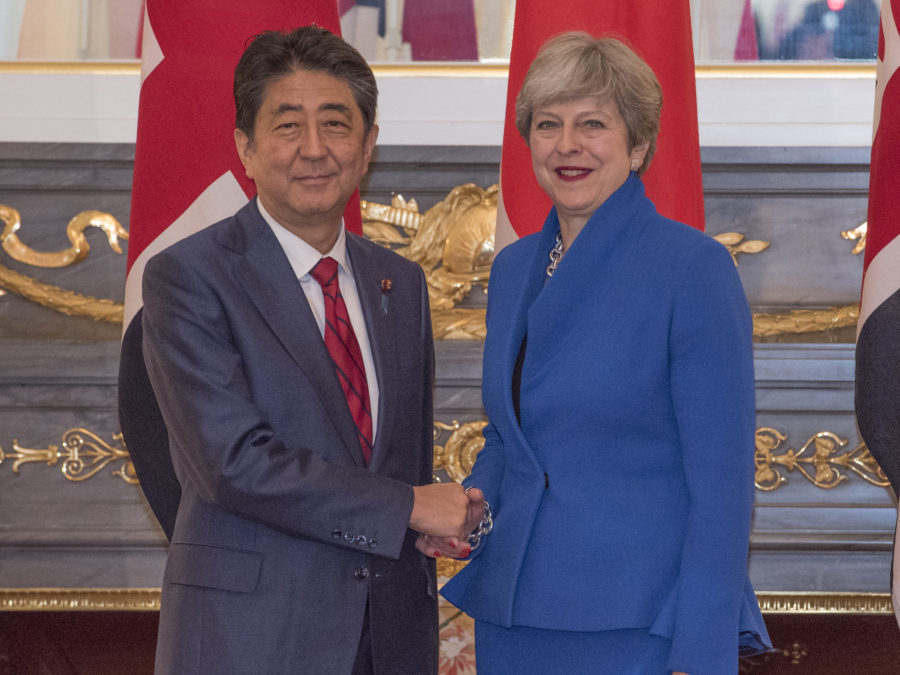This month Japan will take on the chair of the UN Security Council, at the end of a distinguished two year term on the Council, where we have worked very closely together.
This will be an opportunity for Japan and partners in the UN system to continue to maintain the pressure on the DPRK to cease its illegal missile and nuclear programmes. This week we have seen yet another provocative missile test. When Prime Minister May was here in Japan in August, actually in a week when a DPRK missile flew over Japan’s northernmost island of Hokkaido, she made clear that Britain stands shoulder to shoulder with our Japanese friends at this difficult time. She had briefings on the regional security situation from the Japanese Self Defence Force, on board their largest ship, the Izumo. Japan is Britain’s closest security partner in Asia.
At the recent UN General Assembly, Prime Minister May called for further steps and for nations with special responsibility for global security “to work together and exert the pressure we know is necessary to force Kim Jong Un to change his ways”. The UK also played a leading role in the decision by the EU Foreign Affairs Council to impose a new set of autonomous measures on DPRK, including bans on all investment in the North Korean economy and on oil exports.
The Japanese, like the British, are a phlegmatic people. Observers admire how they stoically respond to periodic natural disasters. I have seen for myself this year the successful reconstruction work in Fukushima and Kumamoto.
But it is clear that ordinary Japanese are concerned at the increasing scale and tempo of DPRK provocations. And, as the annual commemorations in Hiroshima and Nagasaki show, the Japanese people are only too well aware of the terrible consequences of nuclear weapons.
The DPRK threat formed an important backdrop to President Trump’s recent Asian tour and to the Asian summitry attended by PM Abe, which takes place around this time of year. The message from the international community is clear. DPRK needs to cease its illegal actions, so that a return to the negotiating table is possible.
If that doesn’t happen, the international community will need to maintain the pressure through strengthening the economic sanctions, which are already biting on the North Korean economy, and ensuring that they are enforced rigorously.
When Japan moves off the Security Council in January, Britain, as a Permanent Member, will continue to work closely with our Japanese friends and partners. We share the aim of a more secure environment in this neighbourhood, and around the world.

